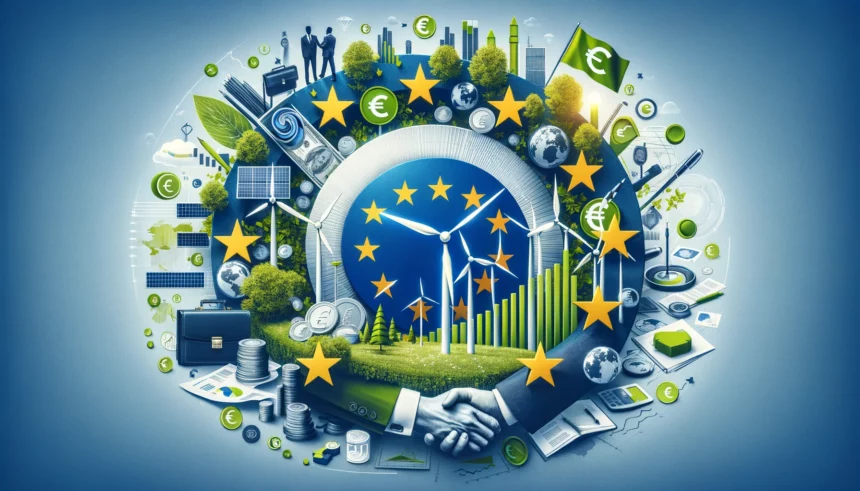The European Union is contemplating additional measures to steer private investments towards sustainable initiatives to ensure it meets its net-zero economy objectives. An EU discussion document revealed on Tuesday indicates a growing concern that without further action, the current pace of investment might not suffice to achieve the bloc’s ambitious climate targets.
The document highlights the critical role of private capital in financing the transition to a low-carbon economy, stating, “While there are some promising tangible results on the ground… it looks uncertain whether current trends will be enough to meet our long-term goals.”
To address potential shortfalls, the European Commission suggests exploring new strategies to facilitate significant investments in key sectors. This may include enhanced efforts to guide and magnify the impact of private funds, although specifics were not provided as the Commission seeks input from member states.
The EU has already laid the groundwork with a taxonomy for sustainable investments, green bond standards, and mandatory ESG disclosures for companies. These measures aim to create a more transparent and conducive environment for green investments, with plans for further refinement.
The discussion also touches on structural challenges within the financial services sector, such as the limited cross-border operation of market players due to national regulatory and legal differences. This fragmentation hinders the full exploitation of the EU single market’s potential, underscoring the need for consolidation in certain financial service areas.
Post-Brexit, the EU is also keen on reducing its dependency on external financial services, particularly in the realm of euro derivatives clearing, to bolster its geopolitical stance and independence.
As the EU gears up for a new five-year term later this year, these discussions form part of a broader agenda to align financial mechanisms with its environmental and sustainability goals, ensuring a greener future for the bloc.
















